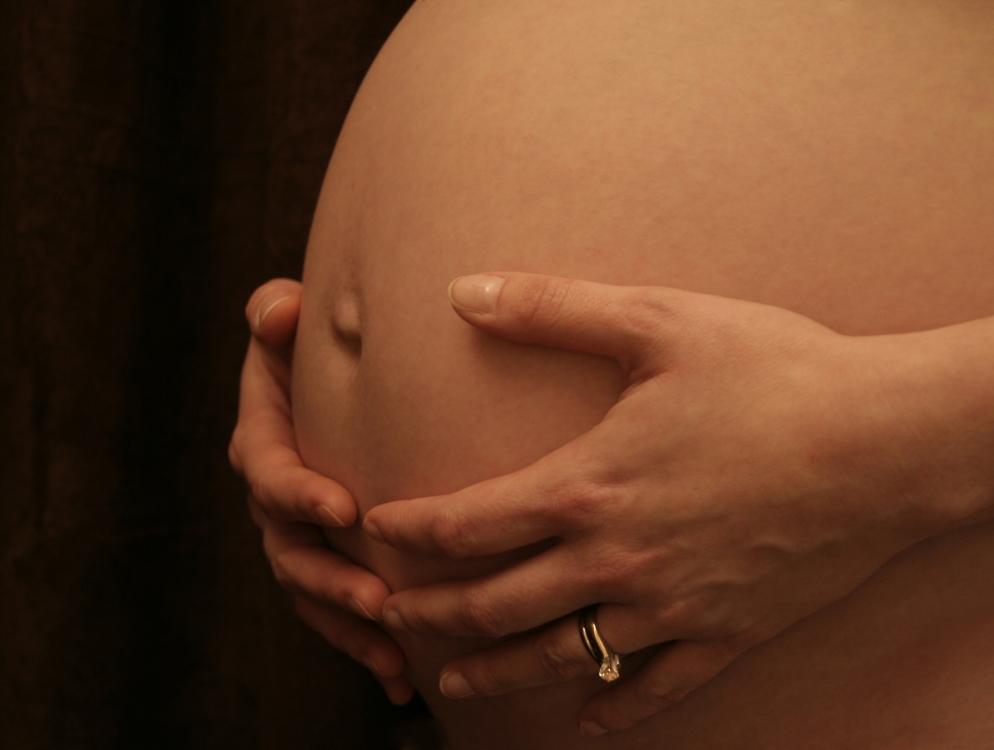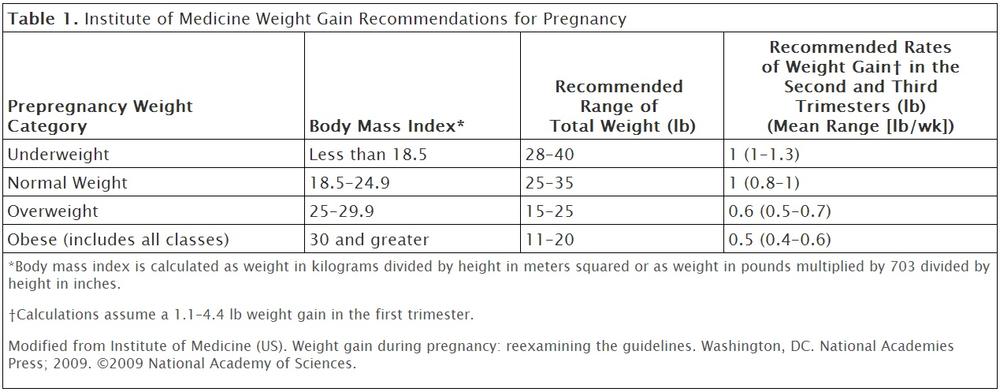
Section Branding
Header Content
Baby Bump Basics
Primary Content

So you’re pregnant. Your baby bump starts showing. You begin to gain weight. But how much weight should you gain and how much is too much?
Weight gain during pregnancy is important because it affects both your health and your baby’s. Gaining too much weight could lead to gestational diabetes, high blood pressure, and life threatening pre-eclampsia for mom. It also increases chances you will need a caesarean section, which means surgery and longer recovery time. For baby, it increases chances of prematurity, still birth, and congenital birth defects. It also ups the odds that your baby will be bigger than normal (macrosomia) which can lead to injuries during birth.
The American College of Obstetrics and Gynecology says how much weight you should gain depends on where you were before you got pregnant. Weight gain parameters vary according to your pre-pregnancy BMI (body mass index), a ratio that looks and weight and height. Based on that ratio:
Women in the underweight range should gain the most, from 28 to 40 pounds. That’s about a pound a week in the second and third trimester.
Those of normal weight should also gain about a pound a week. 25 to 35 pounds is suggested.

Overweight and obese women should gain about half a pound a week-- no more than 15 to 25 pounds total for overweight women, and 11-20 for the obese.
Of course, if you’re having twins, like I did, you need to gain more. Normal weight women carrying twins should gain 37 to 54 pounds. Women who were overweight before they got pregnant and are expecting twins should gain a little less: 31 to 50 pounds. And obese women carrying twins should gain no more than 25 to 42 pounds.
Remember: when you are pregnant, you are eating for two. It’s not just the number of calories that matter, but what’s in those calories. Eat a balanced diet: fruits, veggies, and lean meats. And make sure you’re taking a multivitamin with at least 400 micrograms of folic acid.






